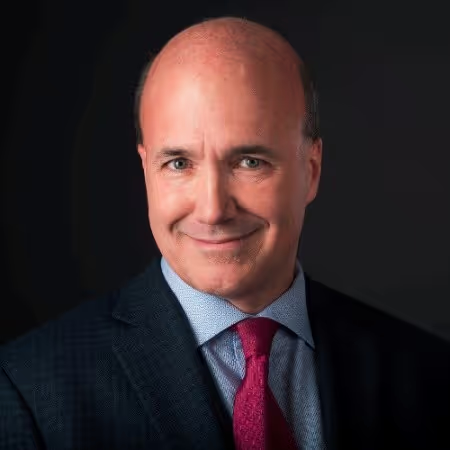Leadership development eliminating the obstacles

Last night I started reading a book by Irvin Yalom, a psychiatrist who has written several novels that I’ve loved. But right now I’m reading something different—a book of short lessons he’s learned from many years of working with patients.
Early in his career, Yalom was inspired by something he read. The gist of it was that all people have a natural tendency to want to grow and become fulfilled—just an acorn will grow up to become an oak—as long as there are no obstacles in the way. So the job of the psychotherapist was to eliminate the obstacles to growth.
This was a eureka moment for Yalom. At the time, he was treating a young widow. Suffering through grief for a long while, she wanted help because she had a “failed heart”—an inability ever to love again.
Yalom had felt overwhelmed. How could he possibly change someone’s inability to love? But now he looked at it differently. He could dedicate himself to identifying and eliminating the obstacles that kept her from loving.
So they worked on that—her feelings of disloyalty to her late husband, her sense that she was somehow responsible for his death, and the fear of loss that falling in love again would mean. Eventually they eliminated all of the obstacles. Then her natural ability to love—and grow—returned. She remarried.
Reading this story made me think of the responsibility of leaders toward the people they need to develop—and for the growth and learning that leaders themselves require to be the best that they can be.
Many leadership development challenges seem overwhelming—even impossible. The leaders that we coach usually have a list of areas where they want to get better, but how? How do you “build better relationships with your peers and direct reports”? How are you supposed to “get out of the weeds and demonstrate enterprise-wide thinking” or “build executive presence”? All of these goals are as abstract as they are huge.
So the best approach is to not focus on the huge and fuzzy goal. What we try to do is to break these goals down into concrete actions through working on real-time business problems. To put it simply, though, we do just as Yalom does: We identify the obstacles and work toward knocking them off, one at a time.
Leadership development is not usually a quick fix. You’re not going to develop executive presence through a half-day workshop or a one-time meeting. If you’re interested in meaningful, lasting growth—whether for yourself or for those who work for you—it’s a commitment.
But don’t ever forget that we’re all capable of growth throughout life and our careers. The trick is to find the right coach or mentor who will guide you through that obstacle course.
Related content

In my work as an executive coach, I meet at least once a month with each of my coaching clients.
I often talk to them on the phone and exchange emails with them as we work on their real-time business challenges. So, what happens in those conversations? Recurring themes start to come up. I find that many leaders have a “talk track” of words and phrases that they use all the time—without always being aware of the impact. For better or worse, this talk track ends up becoming part of their executive presence and their brand as a leader.
One of my clients had a talk track for many years that led to a reputation for negativity. In one meeting alone, I noticed that he had described about ten different work experiences as “nightmares.” Strong word! So we talked about this talk track. And the next time I heard him lapse into that way of talking, I decided to delve into it. “What I just heard from you was an example of that ‘talk track’ we’ve talked about,” I said. “So let’s talk about this. You say it was a ‘nightmare.’ Okay—why do you call it a nightmare?”
The upshot was that he had made a sales presentation but didn’t get the deal. I said, “Let’s use accurate language to describe the situation.” Was it a nightmare? No. Maybe it was a disappointment. Maybe he could have said, “Unfortunately, we didn’t get the deal” or “They decided to go with another vendor” and state why, objectively. My goal was to get him to stop “catastrophizing” when something didn’t work out.
This leader didn’t want to be defined by that negative “talk track” anymore. So I told him that the only way to do that is to turn up the volume on a very different talk track—one that captures the brand and presence that you want to project.
I’ve had clients who always talked about how difficult or challenging or complex things seemed to them. You’ve probably had a boss or colleague with any number of talk-track themes:
- “I’m so exhausted/overwhelmed/unhappy/unappreciated….”
- “Everyone here is useless/stupid/incompetent….”
- “It’s such a difficult environment/project/client/travel schedule…”
- “That will never work/We won’t get that deal/It’s a dumb idea/What were they thinking?”
Often people aren’t even aware of how much they harp on a conversational theme and how negatively this lack of executive presence is affecting their professional brand. So what can you do to make sure your talk track is working for you and not against you as a leader? Take these four steps:
1. Identify your talk-track themes.
What are the words and phrases that you find yourself constantly using in conversations at work? Write down the things you seem to say almost every day—or think about what themes come up all the time for you in conversation at work or elsewhere.
2. Consider the impact of your talk track.
As a leader, your words carry more weight than others. You’re setting the tone for your team or division or organization. Whether that tone is absurdly optimistic, cynical, critical, upbeat, energized, or overly emotional, it’s going to be the model for others. Make sure that your talk track is consistent with the values and behaviors you want to drive.
3. Challenge the reality of your talk track.
How accurate is your talk track? Do you have a natural tendency to see the part of the glass that’s empty? How do you respond to setbacks? Do you gloss over the pain? Do you make a mountain out of a molehill? It’s crucial for leaders to be balanced, objective, and real about what’s happening. Your language choices need to reflect that.
4. Consider what you could say differently.
It’s easy to lapse into your talk track. When you catch yourself saying the same old things, try to catch yourself as if an alarm was going off. Can you find another way to say it—something that’s consistent with the brand and presence you want to project.
Don’t get me wrong. Leaders do need to be “real” about challenges and setbacks, and a somber tone may be appropriate and even helpful at times. The goal is to become more aware of your talk track and what it’s doing for you and others. As a leader, people take their cues from you. Before you know it, your talk track can dominate or drive the culture.
Changing your talk track is a challenge. Our ways of talking and viewing the world are pretty ingrained through several decades of life experiences. But change is also very possible. Pump up the volume on a more positive talk track for the holidays, and your presence will be viewed as a gift.

A while back, I heard an anecdote on the radio about cellist Yo-Yo Ma, and it really struck me. Surprisingly, Ma said that once of his biggest inspirations was chef, author, and television personality Julia Child.
Huh?! Well, it turns out that thinking about Julia Child helped him get in the right mindset before a performance. He would think about watching her on television, making a roast chicken that looked beautiful—only to have it fall off the plate and onto the floor. Did she flip out? No, she never stopped smiling. She just acknowledged what happened and went on with the show.
Reflecting on this, Ma realized that the best mindset he could have as a performer was to ensure that his audience was having a good experience—rather than worrying about being perfect. Speaking to the St. Louis Post Dispatch last October, he said, “The idea of performing is hosting. It’s like you’re giving a party. You invite people to come to a place and enjoy something special; basically, they’re subject to whatever you dish out. You want them to have a great time, they want to have a great time, and what are you doing to facilitate that?”
In a Malcolm Gladwell article that I read years ago, Yo-Yo Ma also admitted that he used to strive for perfection in performance. When he was 17, he practiced a Brahms sonata for a year with technical perfection in mind. So what happened when he did that? “In the middle of the performance I thought, I’m bored. It would have been nothing for me to get up from the stage and walk away. That’s when I decided I would always opt for expression over perfection.
”There is a valuable lesson here for executive presentations. In my experience, many leaders worry too much about precision when they present. Aiming for total accuracy, it’s easy to end up with text-heavy PowerPoint slides—and far too many of them. And once you have a ton of bullets on a slide, you usually feel compelled to read them all. At best, slides still tend to distract the audience’s energy away from you—and the presentation is really all about you, not your visuals.
Think about it: What would you rather be able to say at the end of your presentation?
- I covered every point perfectly and spoke without a single stumble.
- I connected deeply with the audience, and I could sense that they were completely engaged with my presentation.
It’s a no-brainer, isn’t it? If you’re able to really connect with your audience’s questions, concerns, and needs, they won’t even notice if the imperfections that jump out to you as the expert.
Of course, there’s a catch here. Connection trumps precision… but the more you master your topic through preparation and practice, the more you’re freed up to focus on connecting with the audience. When you don’t have to work to remember your key points and transitions, you can concentrate more on your eye contact, gestures, and reading the room.
So give some thought to drawing some inspiration from Julia Child, just as Yo-Yo Ma does as a concert performer. When you’re giving a speech, you’re the host, and your job is to set the tone and make sure that everyone has a good experience.
That’s a recipe for a successful presentation.

Only 9% percent of people who set New Year's goals actually achieve them, according to research by the University of Scranton. According to U.S. News, approximately 80% of resolutions fail by the second week of February. Whichever source you believe, the odds are not in favor of sticking to New Year’s Resolutions.
Whether it’s time, resources, competing priorities, or over-committing, there are plenty of challenges that get in the way of sticking to plans to advance or to improve aspects of your life over the course of the year. It’s not surprising that many of the leaders we work with fall prey to these same obstacles when it comes to finding the time and energy to invest consistently in their own growth and development when they have so much on their plates.
With that in mind, here are a handful of ideas to help you stick to your goals and maintain your focus for the next 12 months -tips that have resonated with the leaders I coached last year:
Make sure your goals are not an unsustainable death march
Every January, my wife and I chuckle about how crowded the gym is. “Just wait,” we’ll say. “All of the New Year’s Resolution people will drop off within a month or so.” And they do. Why? My view is that people tend to make unrealistic, unsustainable goals for themselves. If you start off the year vowing that you’re going to work out an hour every day or eat nothing but salad for lunch and dinner without fail, you’ve probably set out on a death march. And if that’s how it feels, you’ll give it up pretty fast. Instead, decide what’s realistic, and then stick to it, barring something as extreme as a hospitalization or an overseas flight.
Commit to trying out new behaviors for two months
Research suggests that it takes a while for a new habit to stick. I met with a mentee the other day who really needs to change up some habits around exercise and work breaks. My advice was to set that realistic goal and commit to it 100%--but only through February. At that point, she could allow herself to reflect on tweaking her routines… and in the meantime, she’s probably done some things long enough to turn them into habits.
Remember that energy starts with great sleep habits
Due to one obstacle described to me often by leaders trying to elevate their effectiveness, I read a good book this year called The Sleep Solution: Why Your Sleep is Broken and How to Fix it? by W. Chris Winter, MD. I used to get sick a couple of times a year, and finally realized that it happened when I overdid it at work, got a little ill… and then kept overdoing it. I stopped, learned to get extra sleep when I got run down, and I haven’t had a sick day in my seven years at Bates.
Here are some great tips from that book:
- Try to wake up at the same time every day to get in a good sleep rhythm
- Exercise in the morning: It’s best for most people’s energy
- Avoid looking at screens an hour before bed time—or use a blue light filter if you must
- Make your room as dark as possible, and, especially, don’t sleep with the TV on!
- Commit to the number of hours of sleep you need each night: Catching up on the weekend doesn’t really work
Stop deciding every day whether or not you will exercise
This one changed my life about 18 months ago. My wife and I wanted to lose some weight, so we started with a sustainable micro-goal: “Let’s do what it takes to not GAIN any weight each week!” To make sure I could hit that goal, I vowed to work out six days a week, 30 minutes minimum. Through this schedule and a few dietary tweaks, I lost 18 pounds in six months.
The key was I realized that I had developed a terrible habit: lying in bed each morning, deciding if I would go to the gym. I would mull how well I slept… whether I had a tickle in my throat, and so on, and then I was sunk. Instead, I now put my gym clothes, keys, and gym ID in the bathroom before I go to sleep. When I wake up, I just get dressed and get out the door, and before you know it I’m done with my daily commitment.
Load the deck in your favor when planning when to do what each day
Everyone’s energy is a little different over the course of the day. Some start the day with a full tank of energy, and it depletes as the day goes on. I start out strong, wane in the early afternoon, and bounce back energetically from 3 until 6 PM. As a result, I try to be intentional about when I do various kinds of work. If I have some cognitive heavy lifting to do, I try to do it early or late. In the early afternoon, I may opt for a walking meeting, answering emails, or building a program in PowerPoint—things that I can do without a high level of energy.
Give some thought to what works best at whatever time of the day, and schedule yourself accordingly.
Periodically review what you should keep doing and what you should give up
Frequently, leaders continue doing tasks and attending meetings long after they should have delegated the work or opted out of participating. Periodically, make two lists: the stuff that you should continue doing and the stuff that you should consider giving up or giving away. As you rise in the organization, you will get noticed for having more of an enterprise-wide view. To have that, you need to get out of the weeds.
Determine what you need to do to bring your best self to work every day
Everyone varies when it comes to how many hours they can work and how much downtime they need—as well as what they need to do during that time away from work. Every quarter or so, evaluate how energized you feel and keep tabs on what’s happening in weeks when your energy is high or low. If you’re starting off Monday morning feeling tired and stressed, something’s wrong.
So, what do you need to do to bring your best self to work each day? That’s something that only you can figure out.
For me, it’s helpful to think of Saturday as a “no work day,” and I try to limit work on Sundays too. From making all sorts of energy management mistakes over the years, I also have come to realize that I’m not at my best if:
- I don’t eat a substantial breakfast
- I’m eating carb-heavy lunches
- I’m not making sufficient time for my family, friends, and hobbies outside of work
- I’m consuming more than one drink of alcohol on a night before a workday
- I’m not making sufficient time for my family, friends, and hobbies outside of work
Meaningful, lasting change is never easy. Whether you’re mulling a New Year’s Resolution or a behavioral change at any time of the year, think about what you want to do, why it matters, and how you’re going to sustain it over the long haul.
If you do, you’ll be feeling a lot better by the time the ball drops on another new year.
Related content

Global spending on AI is forecast to reach $2.52 trillion by 2026, a 44% year-over-year increase, according to Gartner. At the same time, only about 10% of AI pilots scale beyond proof of concept.
What’s the disconnect?
Why aren’t most organizations seeing the ROI they hoped for, despite making such large investments?
It’s not because the technology isn’t ready. And it’s not because the use cases are unclear.
The disconnect exists because many organizations are investing in AI as a technology upgrade and expecting a business transformation in return.
The tools are advancing at breathtaking speed, and most organizations already have AI in motion. But the work itself often stays the same. AI gets layered onto existing tasks instead of being used to rethink workflows end to end. Adoption metrics go up, while decisions, operating models, and value creation remain largely untouched.
When teams first start using AI, they do what makes sense. They try to recreate today, just faster. Can it help me write this? Analyze that? Save a bit of time?
That’s a smart place to begin. But it’s not where ROI, or reinvention, actually shows up.
Getting over the hump
Real returns begin when teams experience what we often call “getting over the hump.”
This is the moment when two things click at once:
- AI can fundamentally change how work gets done.
- People don’t need deep technical expertise to make that change happen.
When teams see weeks of work compress into hours, or watch an end-to-end workflow suddenly run in a new way, something shifts. Confidence replaces hesitation. Curiosity replaces caution. The questions change, from “How do I use this tool?” to “What’s possible now?”
That shift matters, because ROI doesn’t come from using AI more often, it comes from using it to work differently.
Why ROI stalls as AI scales
As AI initiatives expand, many organizations discover that the limiting factor isn’t the technology itself. It’s the environment surrounding the work.
ROI shows up when teams are able to explore and redesign workflows, not just automate steps. That requires clarity on outcomes and guardrails, but also room to experiment, learn, and iterate. When AI is tightly controlled or narrowly deployed, pilots stay pilots. When people are trusted to rethink how work happens, value starts to compound.
Organizations that unlock ROI don’t chase perfect use cases upfront. They focus on learning faster and applying those insights where they matter most.
The early signal that ROI is coming
Long before AI shows up in financial results, there’s an earlier indicator that organizations are on the right path.
People are energized by the work.
You see it when teams start sharing experiments, when ideas move across functions, and when learning becomes visible rather than hidden. Progress feels owned, not imposed.
That energy isn’t accidental. It’s a signal that people feel trusted to rethink how work happens, and that trust is essential to turning investment into impact.
Reinvention happens closer to the work than most expect
AI reinvention rarely starts with a sweeping rollout or a multi-year roadmap. More often, it begins with one meaningful workflow, one team close to the work, and a willingness to ask a different question.
With the right support, that team gets over the hump. What they learn becomes reusable. Patterns emerge. Over time, those insights connect, creating enterprise-wide impact and sustained ROI.
That’s how organizations move from isolated pilots to real returns.
What this means for AI investment
No organization feels fully “caught up” with AI, and that’s true across industries.
The organizations that will realize ROI aren’t waiting for certainty or the next breakthrough tool. They’re reinvesting their AI spend into new ways of working that scale human potential alongside technology.
Handled thoughtfully, AI doesn’t distance people from the work. It brings them closer - to better decisions, stronger collaboration, and better outcomes.
For many organizations, that’s where the real return begins.

Technology choices are often made under pressure - pressure to modernize, to respond to shifting client expectations, to demonstrate progress, or to keep pace with rapid advances in AI. In those moments, even experienced leadership teams can fall into familiar traps: over-estimating how differentiated a capability will remain, under-estimating the organizational cost of sustaining it, and committing earlier than the strategy or operating model can realistically support.
After decades of working with leaders through digital and technology-enabled transformations, I’ve seen these dynamics play out again and again. The issue is rarely the quality of the technology itself. It’s the timing of commitment, and how quickly an early decision hardens into something far harder to unwind than anyone intended.
What has changed in today’s AI-accelerated environment is not the nature of these traps, but the margin for error. It has narrowed dramatically.
For small and mid-sized organizations, the consequences are immediate. You don't have specialist teams running parallel experiments or long runways to course correct. A single bad platform decision can absorb scarce capital, distort operating models, and take years to unwind just as the market shifts again.
AI intensified this tension. It is wildly over-hyped as a silver bullet and quietly under-estimated as a structural disruptor. Both positions are dangerous. AI won’t magically fix broken processes or weak strategy, but it will change the economics of how work gets done and where value accrues.
When leaders ask how to approach digital platforms, AI adoption, or operating model design, four questions consistently matter more than the technology itself.
- What specific market problem does this solve, and what is it worth?
- Is this capability genuinely unique, or is it rapidly becoming commoditized?
- What is the true total cost - not just to build, but to run and evolve over time?
- What is the current pace of innovation for this niche?
For many leadership teams, answering these questions leads to the same strategic posture. Move quickly today while preserving options for tomorrow. Not as doctrine, but as a way of staying adaptive without mistaking early commitment for strategic clarity.
Why build versus buy is the wrong starting point
One of the most common traps organizations fall into is treating digital strategy as a series of isolated build-vs-buy decisions. That framing is too narrow, and it usually arrives too late.
A more powerful question is this. How do we preserve optionality as the landscape continues to evolve? Technology decisions often become a proxy for deeper organizational challenges. Following acquisitions or periods of rapid change, pressure frequently surfaces at the front line. Sales teams respond to client feedback. Delivery teams push for speed. Leaders look for visible progress.
In these moments, technology becomes the focal point for action. Not because it is the root problem, but because it is tangible.
The real risk emerges operationally. Poorly sequenced transitions, disruption to the core business, and value that proves smaller or shorter-lived than anticipated. Teams become locked into delivery paths that no longer make commercial sense, while underlying system assumptions remain unchanged.
The issue is rarely technical. It is temporal.
Optimizing for short-term optics, particularly client-facing signals of progress, often comes at the expense of longer-term adaptability. A cleaner interface over an ageing platform may buy temporary parity, but it can also delay the more important work of rethinking what is possible in the near and medium term.
Conservatism often shows up quietly here. Not as risk aversion, but as a preference for extending the familiar rather than exploring what could fundamentally change.
Licensing as a way to buy time and insight
In fast-moving areas such as AI orchestration, many organizations are choosing to license capability rather than build it internally. This is not because licensing is perfect. It rarely is. It introduces constraints and trade-offs. But it was fast. And more importantly, it acknowledged reality.
The pace of change in this space is such that what looks like a good architectural decision today may be actively unhelpful in twelve months. Licensing allowed us to operate right at the edge of what we actually understood at the time - without pretending we knew where the market would land six or twelve months later.
Licensing should not be seen as a lack of ambition. It is often a way of buying time, learning cheaply, and avoiding premature commitment. Building too early doesn’t make you visionary, often it just makes you rigid.
AI is neither a silver bullet nor a feature
Coaching is a useful microcosm of the broader AI debate.
Great AI coaching that is designed with intent and grounded in real coaching methodology can genuinely augment the experience and extend impact. The market is saturated with AI-enabled coaching tools and what is especially disappointing is that many are thin layers of prompts wrapped around a large language model. They are responsive, polite, and superficially impressive - and they largely miss the point.
Effective coaching isn’t about constant responsiveness. It’s about clarity. It’s about bringing experience, structure, credibility, and connection to moments where someone is stuck.
At the other extreme, coaches themselves are often deeply traditional. A heavy pen, a leather-bound notebook, and a Royal Copenhagen mug of coffee are far more likely to be sitting on the desk than the latest GPT or Gemini model.
That conservatism is understandable - coaching is built on trust, presence, and human connection - but it’s increasingly misaligned with how scale and impact are actually created.
The real opportunity for AI is not to replace human work with a chat interface. It is to codify what actually works. The decision points, frameworks, insights, and moments that drive behavior change. AI can then be used to augment and extend that value at scale.
A polished interface over generic capability is not enough. If AI does not strengthen the core value of the work, it is theatre, not transformation.
What this means for leaders
Across all of these examples, the same pattern shows up.
The hardest decisions are rarely about capability, they are about timing, alignment, and conviction.
Building from scratch only makes sense when you can clearly articulate:
- What you believe that the market does not
- Why that belief creates defensible value
- Why you’re willing to concentrate risk behind it
Clear vision scales extraordinarily well when it’s tightly held. The success of narrow, focused Silicon Valley start-ups is testament to that.
Larger organizations often carry a broader set of commitments. That complexity increases when depth of expertise is spread across functions, and even more so when sales teams have significant autonomy at the point of sale. Alignment becomes harder not because people are wrong, but because too many partial truths are competing at once.
In these environments, strategic clarity, not headcount or spend, creates advantage.
This is why many leadership teams choose to license early. Not because building is wrong, but because most organizations have not yet earned the right to build.

This article was originally publish on Rotman Management
IN OUR CONSULTING WORK with teams at all levels—especially senior leadership—my colleagues and I have noticed teams grappling with an insidious challenge: a lack of effective prioritization. When everything is labeled a priority, nothing truly is. Employees feel crushed under the weight of competing demands and the relentless urgency to deliver on multiple fronts. Requests for prioritization stem from both a lack of focused direction and the challenge of efficiently fulfilling an overwhelming volume of work. Over time, this creates a toxic cycle of burnout, inefficiency and dissatisfaction.
The instinctive response to this issue is to streamline, reduce the number of initiatives, and focus. While this is a step in the right direction, it doesn’t fully address the problem. Prioritization isn’t just about whittling down a to-do list or ranking activities by importance and urgency on an Eisenhower Decision Matrix; it also requires reshaping how we approach work more productively.
In our work, we have found that three critical factors lie at the heart of solving prioritization challenges: tasks, tracking and trust. Addressing these dimensions holistically can start to address the root causes of feeling overwhelmed and lay the foundation for sustainable productivity. Let’s take a closer look at each.

